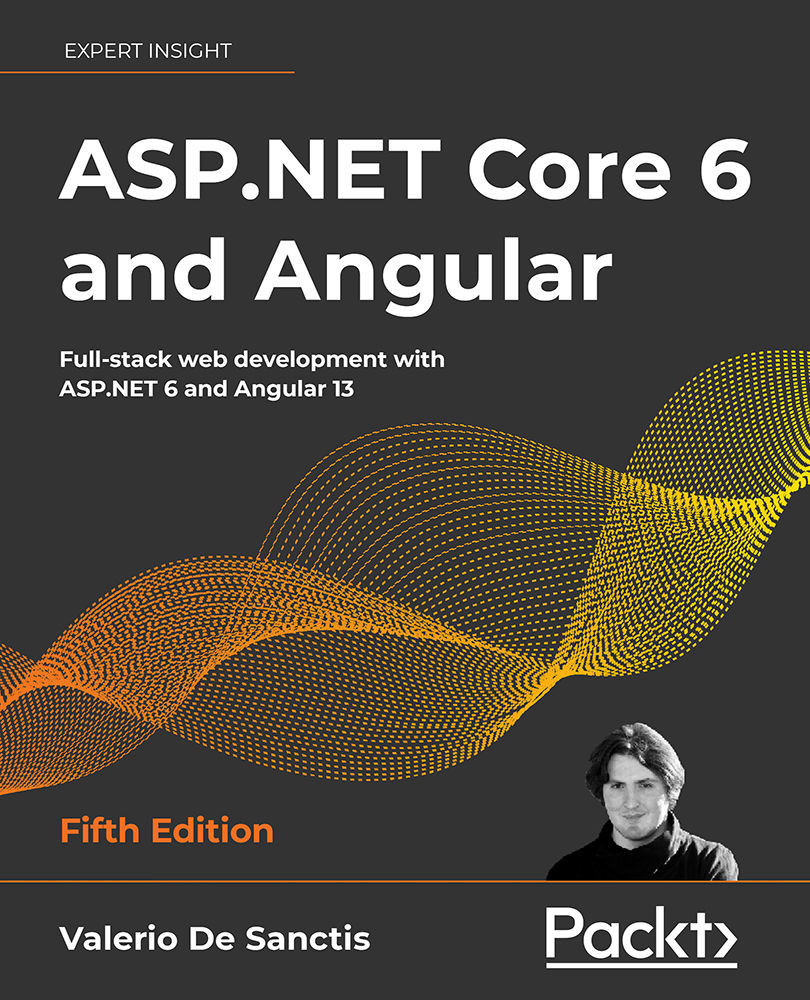Overview of this book
Every full-stack ninja needs the tools to operate on front-end and back-end application development. This web app development book takes a hands-on, project-based approach to provide you with all the tools and techniques that web developers need to create, debug, and deploy efficient web applications using ASP.NET Core and Angular.
The fifth edition has been updated to cover advanced topics such as Minimal APIs, Web APIs with GraphQL, real-time updates with SignalR, and new features in .NET 6 and Angular 13.
You begin by building a data model with Entity Framework Core, alongside utilizing the Entity Core Fluent API and EntityTypeConfiguration class. You'll learn how to fetch and display data and handle user input with Angular reactive forms and front-end and back-end validators for maximum effect.
Later, you will perform advanced debugging and explore the unit testing features provided by xUnit.net (.NET 6) and Jasmine, as well as Karma for Angular. After adding authentication and authorization to your apps, you will explore progressive web applications, learning about their technical requirements, testing processes, and how to convert a standard web application to a PWA.
By the end of this web development book, you will understand how to tie together the front-end and back-end to build and deploy secure and robust web applications.



 Free Chapter
Free Chapter
